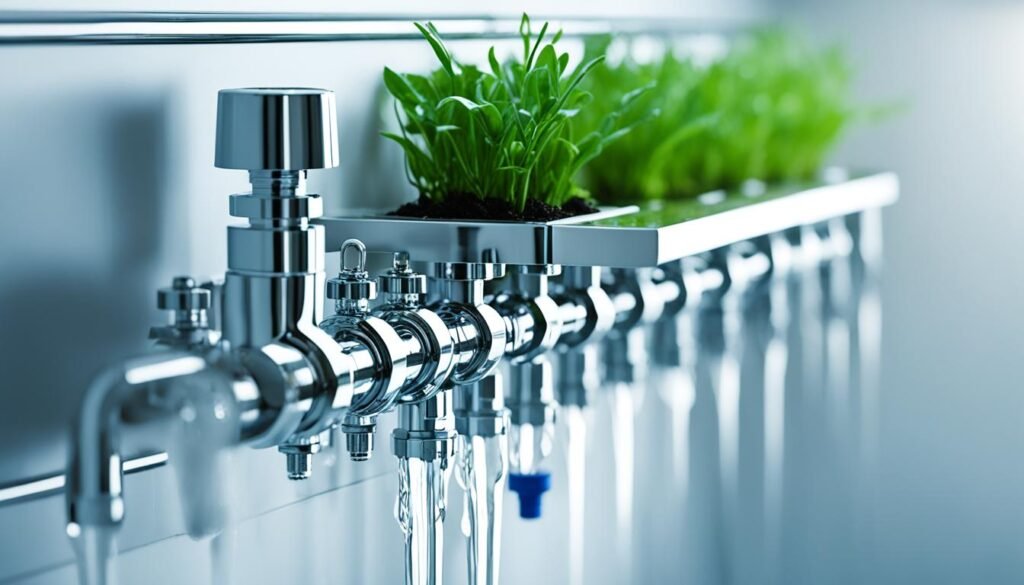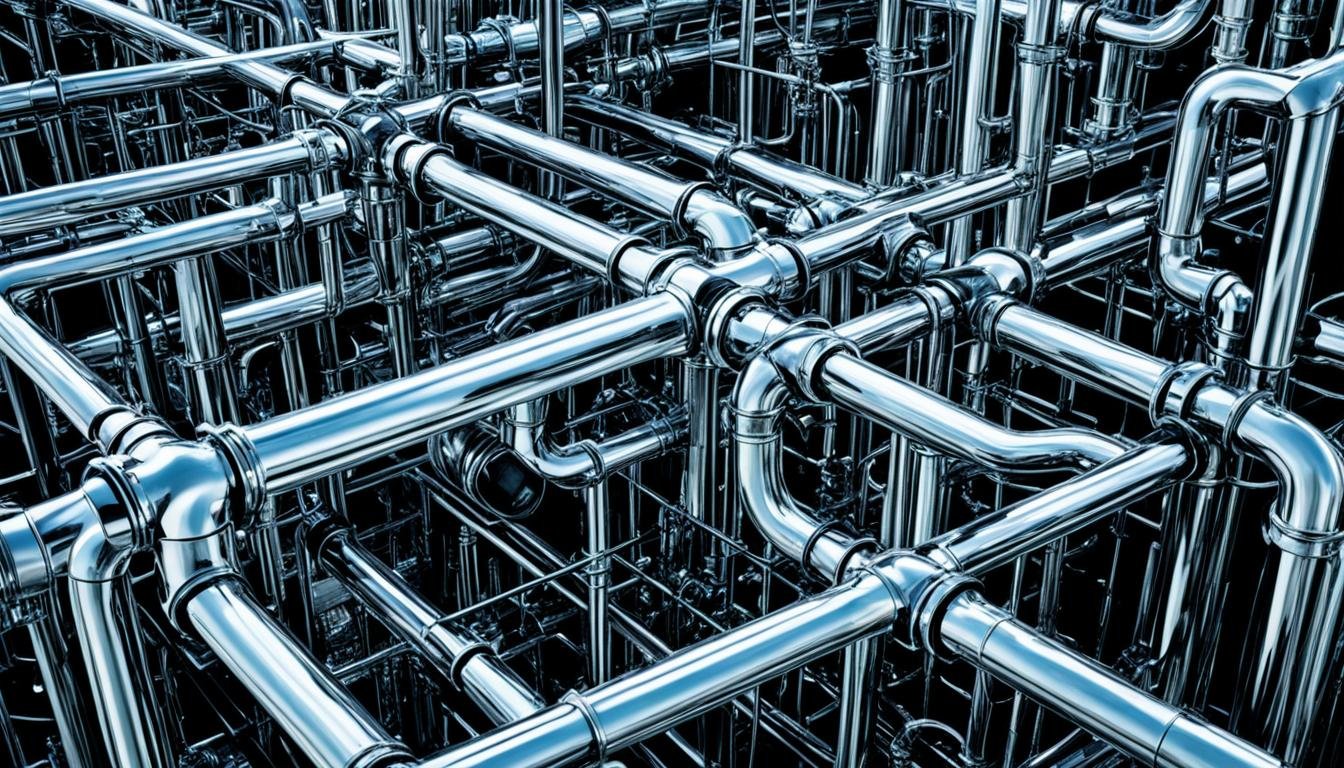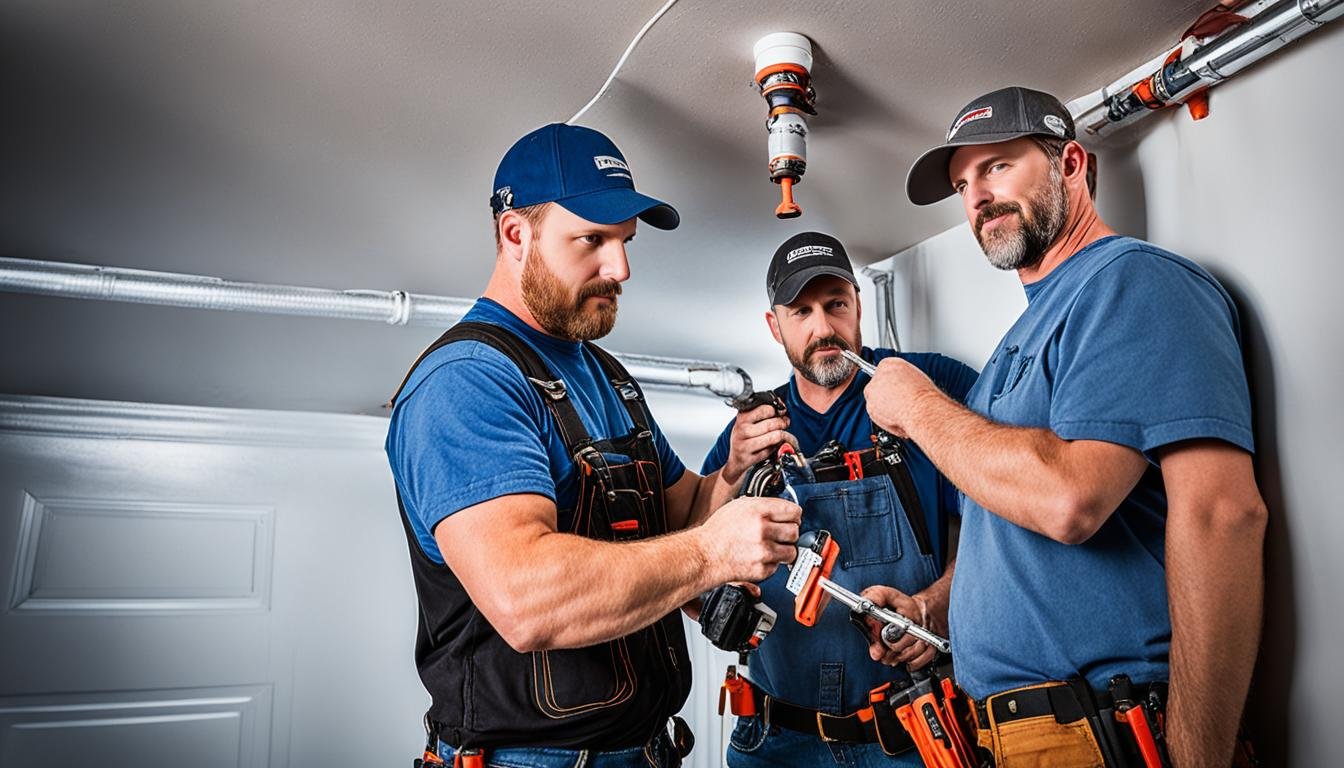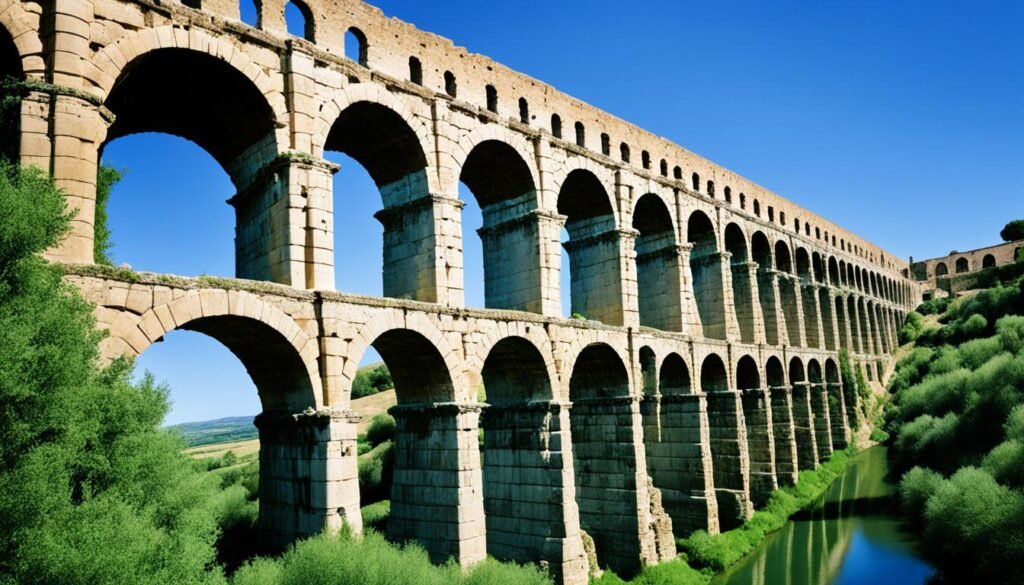Did you know, there are approximately 490,200 plumbers working in the United States? This number shows how crucial plumbing is today. It isn’t just a nice thing to have. It’s essential for clean water, proper waste management, and more. These are things we don’t always think about but use every day.
Plumbing lets you direct water to where you need it. It removes harmful substances, making water safe. With tools like motion sensors and water-saving showerheads, it helps save water. This, in turn, saves money and helps the environment. Plumbing technologies, such as tankless water heaters, save energy. They also lessen the need for plastic bottled water. The benefits are clear, from taking a hot shower to having a working toilet, we rely on plumbing.
Plumbing goes beyond simple comforts. It’s key for better public health and fighting diseases. By keeping our water clean, plumbing has boosted how long and well we live. The World Health Organization sees plumbers as essential for health care. They give us clean water for basic hygiene, which is vital for good health.
Key Takeaways
- Plumbing is essential for providing clean water, efficient waste management, and a host of other benefits that enhance our daily lives.
- Plumbing innovations, such as tankless water heaters and efficient showerheads, help conserve water and energy, saving you money and reducing your environmental impact.
- Plumbing plays a crucial role in public health and disease prevention by ensuring the cleanliness of our water supply and eliminating certain illnesses.
- The plumbing industry provides a stable job market, with about 490,200 actively employed plumbers in the U.S. and a projected job growth of 4% over the next decade.
- Regular plumbing maintenance and inspection are essential for preventing home disasters and ensuring public safety.
Importance of Plumbing: Providing Essential Services
Plumbing is key to our modern life, bringing us clean water and good sanitation. Skilled plumbers set up, take care of, and fix our water and drainage systems. These systems are vital for keeping us healthy at home and in public places. Plumbing isn’t just about entry to clean water; it also manages waste to stop diseases from spreading.
Water Supply and Sanitation
Plumbing systems are vital for getting clean water to every place, from homes to big companies. Plumbers put in and fix the parts of a water system that help water flow freely. They also look after drainage, which is critical for getting rid of waste and stopping diseases.
Keeping plumbing in good shape is vital for public health and meeting rules. Bad plumbing can pollute water, risking illnesses. Having plumbers regularly check and fix problems stops diseases and keeps places clean.
Taking care of plumbing saves money in the long term by stopping bigger issues. Early problem spotting and fixing keep plumbing working longer. This can up a property’s worth and how energy efficient it is. It makes a home or building more attractive to buyers, too.
| Benefit | Description |
|---|---|
| Cost Savings | Routine plumbing maintenance can save money by avoiding more costly repairs. |
| Health Risks | Faulty plumbing can lead to water contamination, causing health risks from bacteria or viruses. |
| Cleanliness and Hygiene | Regular plumbing maintenance ensures clean water supply and proper drainage, contributing to a hygienic environment. |
| Property Value | Maintaining plumbing systems increases property value and energy efficiency, making it more attractive to potential buyers. |
| Garbage Disposal | Proper plumbing maintenance prevents waste build-up in drains, reducing health hazards and environmental impact. |
| Lifespan of Systems | Regular checks and inspections help identify problems early, extending the lifespan of plumbing systems and appliances. |
To wrap up, plumbing is vital for health and hygiene in our lives and communities. Plumbers protect our health, keep things clean, and safeguard property values. Getting professional plumbing help is smart for any home or business owner. It keeps your water and waste systems running well for years.

Plumbing Innovations: Conserving Resources, Saving Lives
Plumbing innovations have changed how we use and save water. They include things like low-flow toilets and water-saving faucets. These new items help us use less water and save money on our bills.
Tankless heaters and other energy-efficient technologies also make a big difference. They heat water when you need it, without needing a tank. This saves a lot of energy and is better for our planet.
Caring for plumbing and stopping leaks is also crucial. It keeps our homes safe from water damage and mold. Fixing leaks quickly saves water and helps in dry areas that lack water.
The plumbing industry always works on new ways to help the planet. Things like smart water systems and eco-friendly materials are making a difference. They cut down on costs and lessen pollution.
Today, facing water issues and climate change, plumbing is more important than ever. New plumbing tech helps us use water more wisely and keep our planet healthy. Check out how you can bring these changes to your home in the Dream Home Digest at plumbersinhemetca.com.
| Innovation | Impact |
|---|---|
| Low-flow toilets and faucet aerators | Reduced water consumption, lower utility bills |
| Tankless water heaters | Improved energy efficiency, smaller carbon footprint |
| Leak detection and repair | Prevented property damage, water conservation |
| Smart water monitoring systems | Enhanced efficiency, reduced costs, minimized environmental impact |

“Plumbing innovations have transformed the way we conserve our most precious resource – water. By embracing these advancements, we can build a more sustainable future for generations to come.”
Embracing Plumbing Innovations for a Sustainable Future
The plumbing industry is all about finding new ways to be green. From saving water with efficient toilets to heating water only when needed, these changes are good for our wallets and our planet.
- Low-flow toilets and faucet aerators reduce water consumption by up to 30%, leading to significant savings on utility bills.
- Tankless water heaters heat water on-demand, eliminating the need for constant tank heating and reducing energy usage by up to 50%.
- Leak detection and timely repairs prevent property damage, mold growth, and water wastage, contributing to overall water conservation efforts.
- Smart water monitoring systems and eco-friendly plumbing materials are transforming the industry, enhancing efficiency and minimizing environmental impact.
With climate change and water becoming scarce, innovative plumbing is key. By using these new technologies, we can save water and protect our planet. Our future depends on it.
Conclusion
The Importance of Plumbing in our world today is huge. It is key for our health, comfort, and well-being. Plumbing manages our water, keeps sanitation right, saves resources, and even saves lives.
Plumbing is always getting better. And its benefits are growing, helping us, our communities, and nature. Knowing this shows how vital plumbing is to our lives every day.
Everyone benefits from good plumbing, whether in Hemet, CA, or elsewhere. Upgrade your plumbing at home to keep your family safe and healthy. You can learn more at plumbersinhemetca.com. Or, get tips from the Dream Home Digest for expert advice.
FAQ
What is the importance of plumbing in modern society?
Plumbing is key for health, comfort, and safety. It helps control water supply. This ensures proper sanitation saving lives.
How does plumbing help with water supply and sanitation?
Plumbers make sure we get clean water and sanitation. They install and fix water systems. This includes making sure waste gets removed safely.
How have plumbing innovations improved resource conservation and safety?
Modern plumbing saves a lot of water with things like low-flow toilets. It saves electricity too. Fixing leaks stops water damage and prevents mold, keeping homes safe.
Source Links
- https://www.stephensplumbing.net/blog/plumbing-2/7-reasons-why-plumbing-is-important/
- https://www.pmmag.com/articles/97077-top-10-reasons-why-plumbing-is-so-important
- https://ptt.edu/why-plumbers-are-significant-for-the-society/
- https://www.comfortcentre.com/6-reasons-why-plumbing-maintenance-is-essential/
- https://metropha.com/blog/importance-of-plumbing-services-in-cleveland-ga/
- https://www.sbplumbingutah.com/the-importance-of-plumbing-maintenance/
- https://stewartplumbing.com/ways-that-plumbing-improves-quality-of-life/
- https://www.national1plumbing.com.au/blog/the-role-of-plumbers-in-water-conservation
- https://levelau.com.au/plumber-canberra/news/why-plumbing-is-important/
- https://besten.in/2020/01/the-role-of-plumbing-in-the-public-health-system/
- https://www.plasto.in/why-plumbing-is-more-essential-factor-in-home-construction/
- https://medium.com/@all_week_plumbing/the-vital-role-of-plumbing-services-keeping-your-home-flowing-smoothly-214851303d4b




